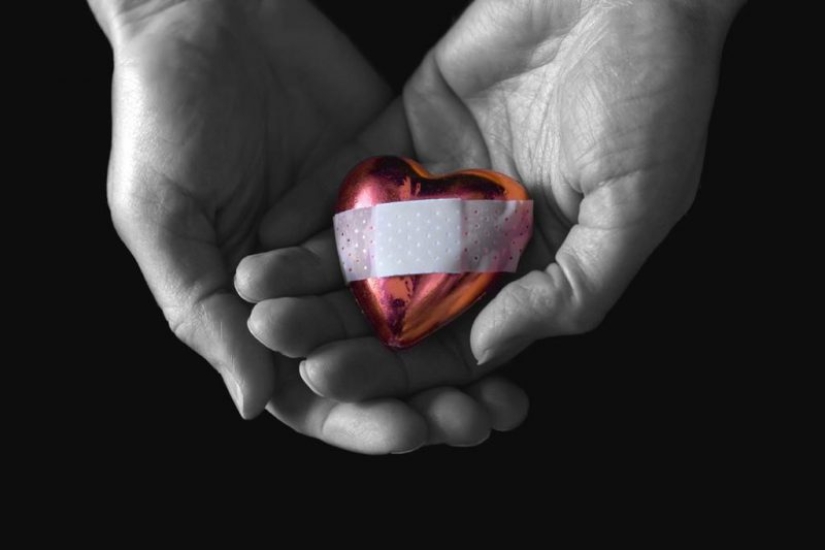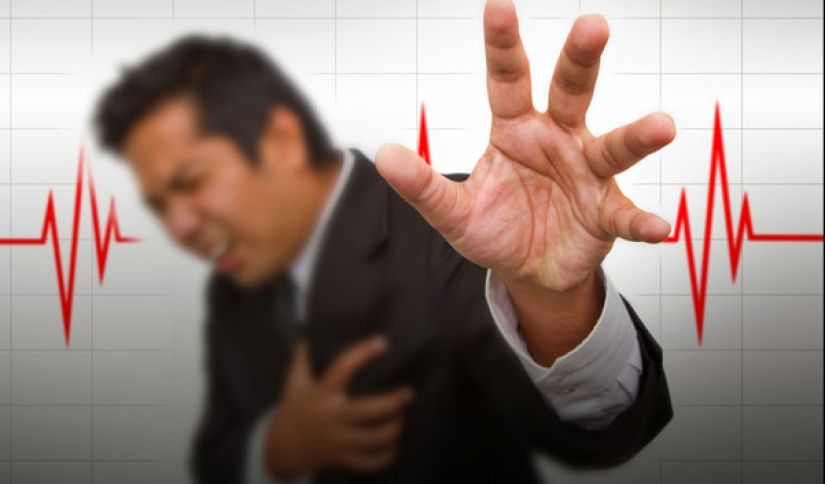Broken Heart syndrome: Thoughts can kill lovers
Categories: Europe | Health and Medicine | Science
By Pictolic https://pictolic.com/article/broken-heart-syndrome-thoughts-can-kill-lovers.htmlWe have all heard such an expression as "broken heart". It is often used in novels, poems and TV shows when it comes to the betrayal of a loved one or another unpleasant situation in his personal life. Absolutely everyone is sure that this is a metaphor, a figurative expression that has no medical implication. But this is not so — Swiss scientists have conducted serious research and it is possible that very soon "broken heart syndrome" will become a medical term.

Dr. Elena Gadri from The University Clinic of Zurich, with a team of like-minded people, set themselves the task of determining the mechanism linking a person's emotions and his cardiovascular system. The result of the study confirmed the well-known fact that the heart can suffer due to some sad event, but now doctors have made serious progress in studying this phenomenon.

The responsibility for the negative impact on the heart, as it turned out, lies entirely with our brain. Serious stress causes such a dangerous condition as acute transient left ventricular dysfunction, which is accompanied by heart failure, chest pain and an ECG picture typical of myocardial infarction of the anterior wall of the left ventricle.
It seems to be nothing unusual — we all know that people with a weak heart can have a heart attack on the basis of negative emotions. But Swiss scientists have found that there is a danger even for absolutely healthy people and that in their case, cardiac dysfunction is most often a consequence of the death of a loved one or separation. That is why the phenomenon has been called "broken heart syndrome" — this is a dangerous condition that should be avoided, first of all, by lovers of both sexes.

How the trigger mechanism of the syndrome works is not yet completely clear. In his article in the European Heart Journal, Dr. Elena Gardi only writes that the responsibility for a heart attack associated with the loss of a loved one is solely borne by our brain.
Such a phenomenon as "broken heart syndrome" is not a discovery for science. It was first described in 1990 by the Japanese scientist Hikaru Sato. This doctor called the syndrome in his own way — "takotsubo cardiomyopathy", referring to the traditional Japanese cuisine pot "takotsubo" with a wide round base and a rather narrow neck.
This type of cardiomyopathy differs from a simple heart attack in that it is caused not by a blockage of the coronary artery by a blood clot and the cessation of blood flow to the heart, but by a signal from the brain. At the same time, it is unlikely to be possible to distinguish between a normal attack and one associated with "broken heart syndrome". The sensations in both cases are absolutely similar and they represent pain in the heart, difficulty breathing and panic.

Scientists have also found that in rare cases, the syndrome can manifest itself with great joy — at a wedding, after a successful job interview, when handing over a long-awaited gift. In some cases, "takotsubo cardiomyopathy" does not lead to serious consequences and the heart recovers on its own after a couple of days or weeks, and in others, a heart attack leads to death.
This phenomenon is not so rare, considering that in the UK the syndrome is found in 2500 patients every year. It should be said that people who have suffered as a result of a personal personal tragedy do not always go to the doctor with heart problems, and also not every time the causes of the attack are correctly determined by the doctors themselves. In this regard, it can be assumed that a "broken heart" is, if not a massive, then certainly a very common phenomenon in the UK.

Swiss scientists asked 15 people who had previously been diagnosed with "broken heart syndrome" and 39 people who were not familiar with this phenomenon to take part in the research. Tomography of volunteers from different groups showed very different results. In healthy people, the connection of the areas of the brain responsible for emotions with the unconscious reactions of the body, including the heartbeat, was minimal and it would be extremely difficult to upset them before a heart attack.
The research has not yet been completed and the Swiss will have to find out the nature of this syndrome and find a way to avoid the sad consequences of its manifestation.
Recent articles

Stockings rolled below the knees - the rebellious fashion of the 1920s! Girls longed for freedom, not wanting to wear uncomfortable ...

The Englishwoman Kirsty Mitchell (Kirsty Mitchell) back in 2009 began work on a large-scale photo project "Wonderland", which was ...

Many have heard of boiling lakes fed by hot springs. But a river with boiling water is more like a myth or a plot from Dante's ...